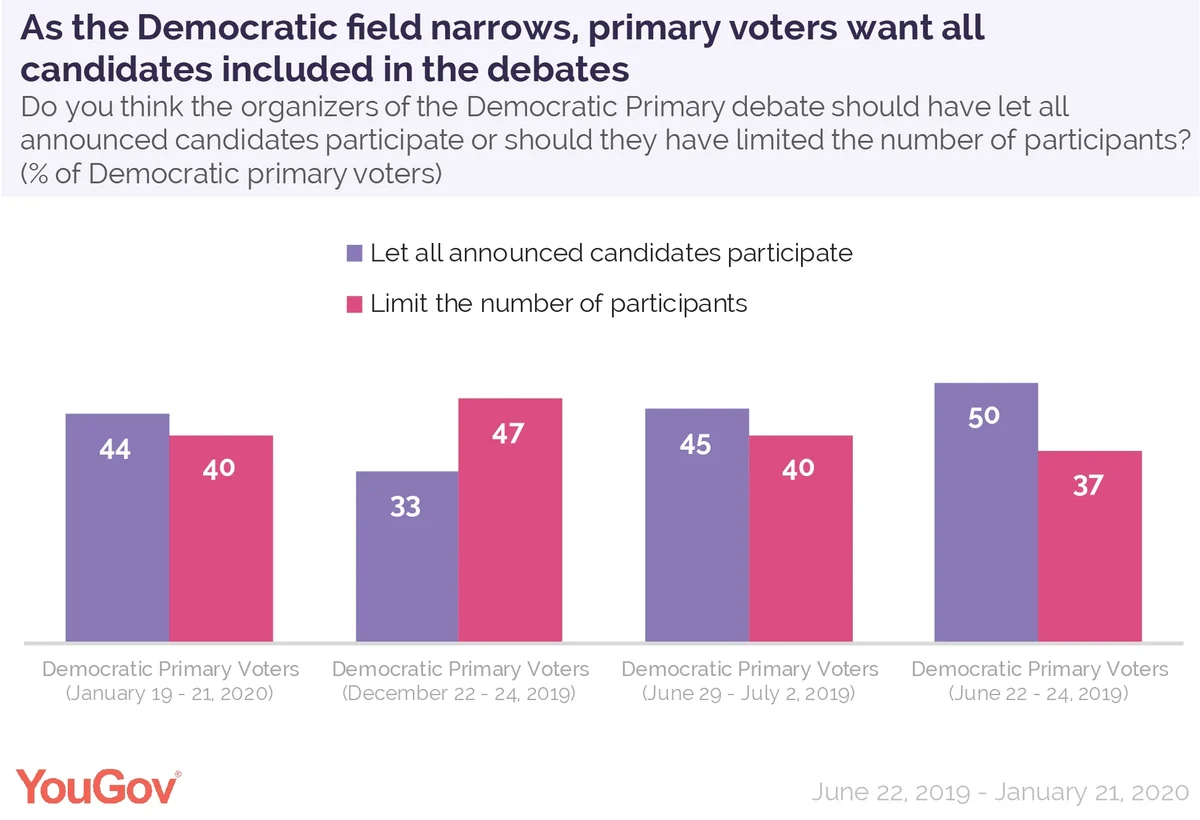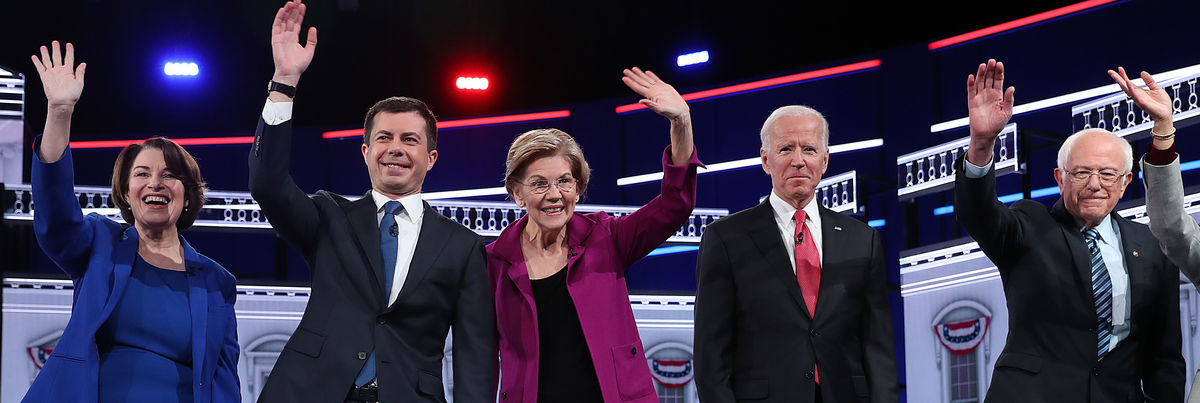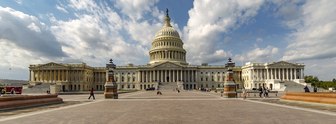After seven Democratic primary debates so far and more to come — including a debate scheduled between the Iowa caucuses and the New Hampshire primary — the latest Economist/YouGov Poll suggests that at least some Democratic primary voters may be getting debate fatigue. Data shows that voters aren’t just tired of the volume of events, but also the limitations on the number of candidates allowed to participate.
Only five candidates have been in all seven debates: former Vice President Joe Biden, former South Bend Mayor Pete Buttigieg, Minnesota Senator Amy Klobuchar, Vermont Senator Bernie Sanders, and Massachusetts Senator Elizabeth Warren. Along with former New York City Mayor Michael Bloomberg, they also are the top candidates in the latest poll.
After the first debates, Democratic voters were closely divided on whether the field should be limited (beforehand half wanted all candidates to participate). Later in 2019, more wanted limits. But, now after the smallest debate so far, as many Democratic voters say they think all the candidates should be participating as are happy to limit the number participating (only businessman Tom Steyer joined the five in the last debate).

This change in opinion only occurred with the most recent debate. After the sixth debate, in December, Democratic voters still supported limiting the number of candidates participating (47%).
More than four in 10 Democratic voters (45%) claim they are “not at all interested” in the debates, up from 28 percent after the first debates. Now, just a quarter are “very interested,” which is down from 38 percent in June, after the first debates.
The so-called debate fatigue doesn’t mean Democratic voters don’t think debates matter. Nearly two-thirds (63%) say how the candidates perform in the debates will be at least somewhat important in how they cast their vote for the Democratic presidential nomination. But only 16 percent say that will be very important, down from a quarter (27%) who felt that way last June.
The youngest Democratic voters—those under the age of 30—are the least likely to think the debates will matter in their vote choice. Nearly half of them (47%) say they will be not very or not at all important. That’s ten points higher than Democratic voters overall.
Even with fewer candidates, it remains hard for many voters watching to decide who did the best job in the debate. After the most recent debate, one in three Democratic primary voters who watched news stories about the debate – or saw the debate itself—couldn’t make a judgment of who won the debate. Warren was called the winner by 20 percent. She has consistently been judged as the best (or one of the best) of the debaters in the post-debate polls.
Fewer (15%) answered that Sanders did the best job, while 14% said Biden did. Just 6 percent selected Buttigieg and Klobuchar, while half that percentage cited Steyer.
It is also clear that some Democratic voters overall have stopped watching. Before the first debate, three in ten (30%) claimed they would watch all the debate. Fewer than one in five (18%) said that’s what they did for last week’s debate.
There is an ideological difference in who is watching. Liberal Democratic primary voters are nearly twice as likely as Democratic voters who call themselves moderate or conservative to have seen all the debate. Nearly one in four moderate and conservative Democratic primary voters say they have heard nothing about the most recent debate; fewer than one in ten (9%) liberal Democratic primary voters claim to have heard nothing.
Related: How Americans describe the Democratic presidential candidates
See the full toplines and crosstabs from this week’s Economist/YouGov poll
Image: Getty












